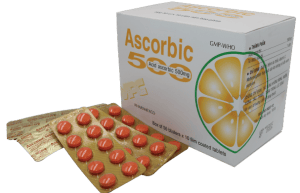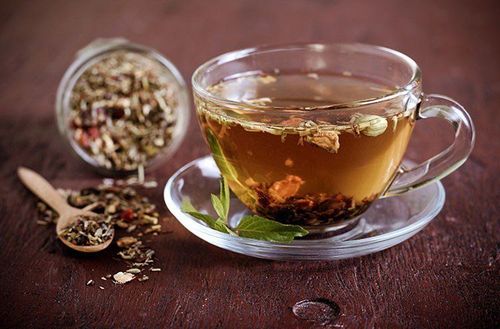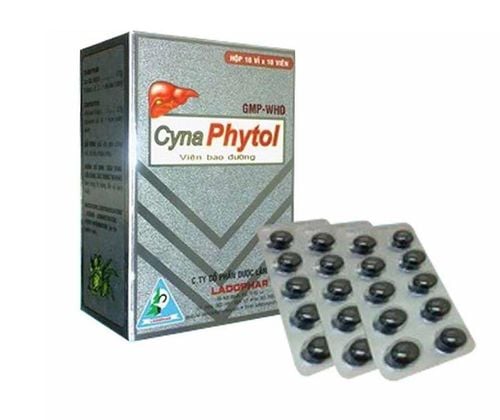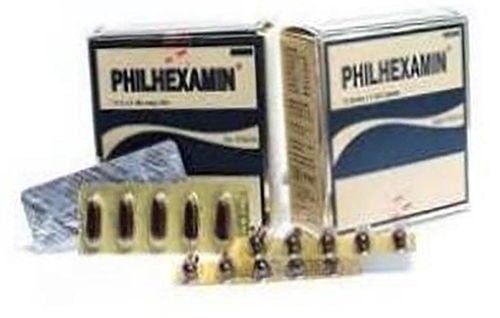This is an automatically translated article.
Your immune system does an important job of protecting you against disease-causing microorganisms. But sometimes it doesn't work, a germ successfully invades and makes you sick. So how to boost your immune system?
Although boosting immunity is easier said than done, some changes to a healthy diet and lifestyle can strengthen your body's natural defenses, helping you fight off infections. harmful pathogens or disease-causing organisms. Here are some ways to boost your immunity naturally.
1. Get enough sleep
Sleep is closely tied to immunity. In fact, not getting enough sleep or poor quality sleep is linked to an increased susceptibility to illness.
In a study of 164 healthy adults, those who slept less than 6 hours per night were more likely to catch a cold than those who slept more than 6 hours or more per night.
Getting enough sleep can strengthen your natural immunity. Also, when you're sick you can get more sleep to allow your immune system to better fight off illness.
Adults should aim for 7 or more hours of sleep per night, teenagers need 8–10 hours of sleep per night and younger children and infants up to 14 hours per day.
If you have trouble sleeping, try limiting your time using electronic devices to an hour before bedtime, as the blue light emitted by phones, TVs or computers can affect the biological clock. or your body's natural sleep-wake cycle.
Other tips to help you get a good night's sleep include:
Sleep in a completely dark room or use an eye patch while sleeping. Go to bed at the same time every night. Exercise regularly.

Ngủ đủ giấc có thể tăng cường khả năng miễn dịch tự nhiên của bạn
2. Eat more plant foods
Plant foods like fruits, vegetables, nuts, seeds and legumes are rich in nutrients and antioxidants that can help you fight off pathogens.
The antioxidants in plant-based foods help reduce inflammation by fighting free radicals, which when accumulated in high levels in the body can cause inflammation.
The fiber in plant foods provides nutrition for your gut microbiota. A healthy gut microbiome can help improve your immunity and help prevent pathogens from entering your body through the digestive tract.
At the same time, fruits and vegetables are rich in nutrients like vitamin C, which can boost your immunity.
3. Eat more healthy fats
Healthy fats, like those found in olive oil and salmon, can help boost your body's immune response to pathogens by reducing inflammation.
Although a low-grade inflammatory response is a normal response to injury, chronic inflammatory conditions can suppress your immune system.
Olive oil is highly anti-inflammatory, which has been linked to a reduced risk of chronic diseases like heart disease and type 2 diabetes. At the same time, its anti-inflammatory properties can help your body fight off harmful disease-causing bacteria and viruses.
For example, the omega-3 fatty acids found in salmon and chia seeds also have anti-inflammatory effects.
4. Eat a lot of fermented foods or take a probiotic supplement
Fermented foods are rich in beneficial bacteria called probiotics, which live in your digestive tract. Fermented foods include yogurt, sauerkraut, kimchi, kefir, and natto.
Research shows that a thriving gut microbiome can help your immune cells better recognize invading organisms that are harmful to your body.
In a 3-month study in 126 children, those who consumed only 2.4 ounces (70 mL) of fermented milk daily had approximately 20% fewer childhood infectious diseases than those who did not. Use fermented milk.
If you don't regularly consume fermented foods, then a probiotic supplement is another option. In a 28-day study of 152 people with rhinovirus infections, those who supplemented with the probiotic Bifidobacterium animalis had a stronger immune response and lower levels of the virus in their nasal mucus compared to those who did not. .
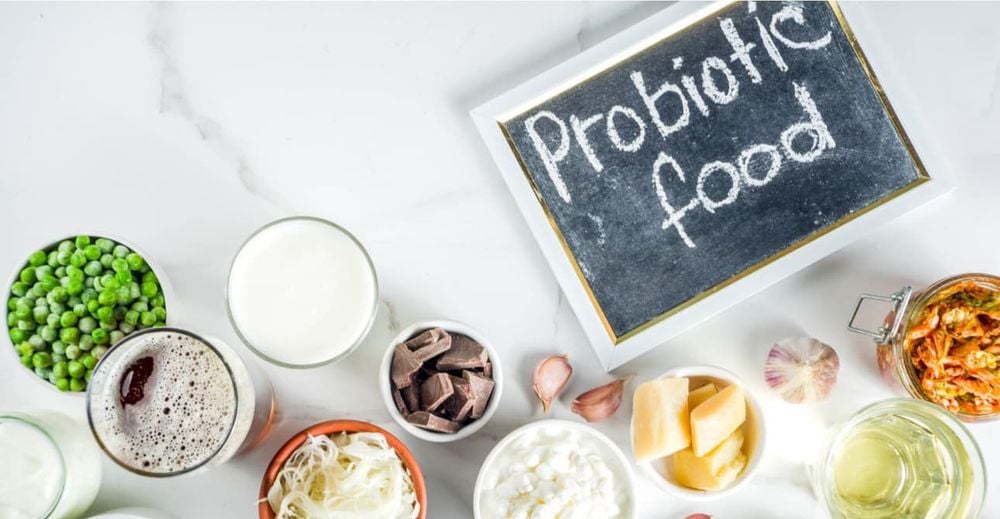
Các loại thực phẩm lên men rất giàu các loại vi khuẩn có lợi được gọi là men vi sinh
5. Limit added sugars
Emerging research suggests that added sugars and refined carbs may contribute to overweight and obesity. And being overweight can also increase your risk.
According to an observational study of about 1,000 people, people with obesity who received the flu vaccine were still more than twice as likely to get the flu than those who were vaccinated but were not obese.
Limiting sugar intake can reduce inflammation and aid in weight loss, thereby helping to reduce the risk of chronic diseases such as heart disease and type 2 diabetes.
Due to obesity, disease Type 2 diabetes and heart disease can both weaken your immune system, so limiting added sugars is an important part of an immune-boosting diet.
You should try to limit your sugar intake to less than 5% of your daily calories. This equates to about 2 tablespoons (25 grams) of sugar for a person on a 2,000-calorie diet.
6. Moderate exercise
Although intense and prolonged exercise can suppress your immune system, moderate exercise can help strengthen the immune system. Studies have shown that even a single session of moderate exercise can increase the effectiveness of the vaccine in people with weakened immune systems.
Furthermore, regular moderate-intensity exercise can reduce inflammation and help your immune cells regenerate regularly.
Moderate forms of exercise include brisk walking, biking, jogging, swimming, and light hiking. Most people should aim for at least 150 minutes of moderate exercise each week.

Nên tập thể dục 150 phút mỗi tuần
7. Stay hydrated
Hydration doesn't necessarily protect you from germs and viruses, but preventing dehydration is important for your overall health.
Dehydration can give you headaches and interfere with physical activity, reduce concentration, affect your mood, digestion, and heart and kidney function. These things can increase your chances of getting the disease.
To prevent dehydration, you should drink enough water daily. Experts recommend water because it is free of calories, additives and sugar.
While tea and fruit juices also work to hydrate, it is still best to limit your intake of fruit juices and sweetened teas because they have a high sugar content.
You should drink water when you feel thirsty and stop when you are no longer thirsty. You may need more water if you exercise intensely, when working outdoors, or in a hot environment.
It is important to note that older adults begin to lose their appetite because their bodies do not signal thirst adequately. So older people need to drink water regularly even if they don't feel thirsty.
8. Stress relief
Reducing stress and reducing anxiety is the key to good health. Prolonged stress promotes inflammation, as well as a loss of immune cell function. In particular, prolonged psychological stress can suppress the immune response in children.
Activities that can help you manage stress include meditation, exercise, journaling, yoga, and other mindfulness practices. You may also benefit from seeing a counselor or psychotherapist, either directly or indirectly.
9. Supplement Wisely
Several studies have shown that the following supplements can boost your body's overall immune response:
Vitamin C: According to a review of 11,000 people, take 1,000 – 2,000 mg of vitamin C daily reduces the duration of colds by 8% in adults and 14% in children. However, supplementation does not prevent a cold once it has started. Vitamin D: A vitamin D deficiency can increase your chances of getting the disease, so taking a supplement may counteract this effect. However, taking vitamin D supplements when you already have enough is unlikely to provide additional benefits. Zinc: In a review in 575 people with the common cold, supplementing with more than 75 mg of zinc per day reduced the duration of a cold by 33%. Elderberry: One small review found that elderberry might reduce symptoms of upper respiratory tract infections caused by viruses, but more research is needed. Garlic: A 12-week study of 146 people found that garlic supplementation reduced the incidence of the common cold by about 30%. In addition to lifestyle changes, dietary changes, there are other solutions to help boost your immune system such as autologous immunotherapy, stem cell technology,...
General Hospital Vinmec International Department is the first hospital approved by the Ministry of Health to apply autologous immunotherapy to support cancer treatment since 2018, Vinmec is ready to research and apply this therapy for prevention purposes, improve everyone's health. With the program "Biological Horoscope", Vinmec relies on the largest DNA database of Asians to assess general health, risk of cancers, chronic diseases, drug allergies... Leading in applying many modern stem cell and gene technologies, and owning the most modern and closed tissue bank in Vietnam today, Vinmec is conducting storage and isolating mesenchymal stem cell cultures. from different sources, including adipose tissue - which is a "discarded" product after cosmetic liposuction - used in treatment and beauty.
With the solid foundation of people and technology mentioned above, Vinmec will soon be able to provide comprehensive and truly useful healthcare solutions that many Vietnamese people are looking for.
Please dial HOTLINE for more information or register for an appointment HERE. Download MyVinmec app to make appointments faster and to manage your bookings easily.
References: health.harvard.edu, webmd.com




